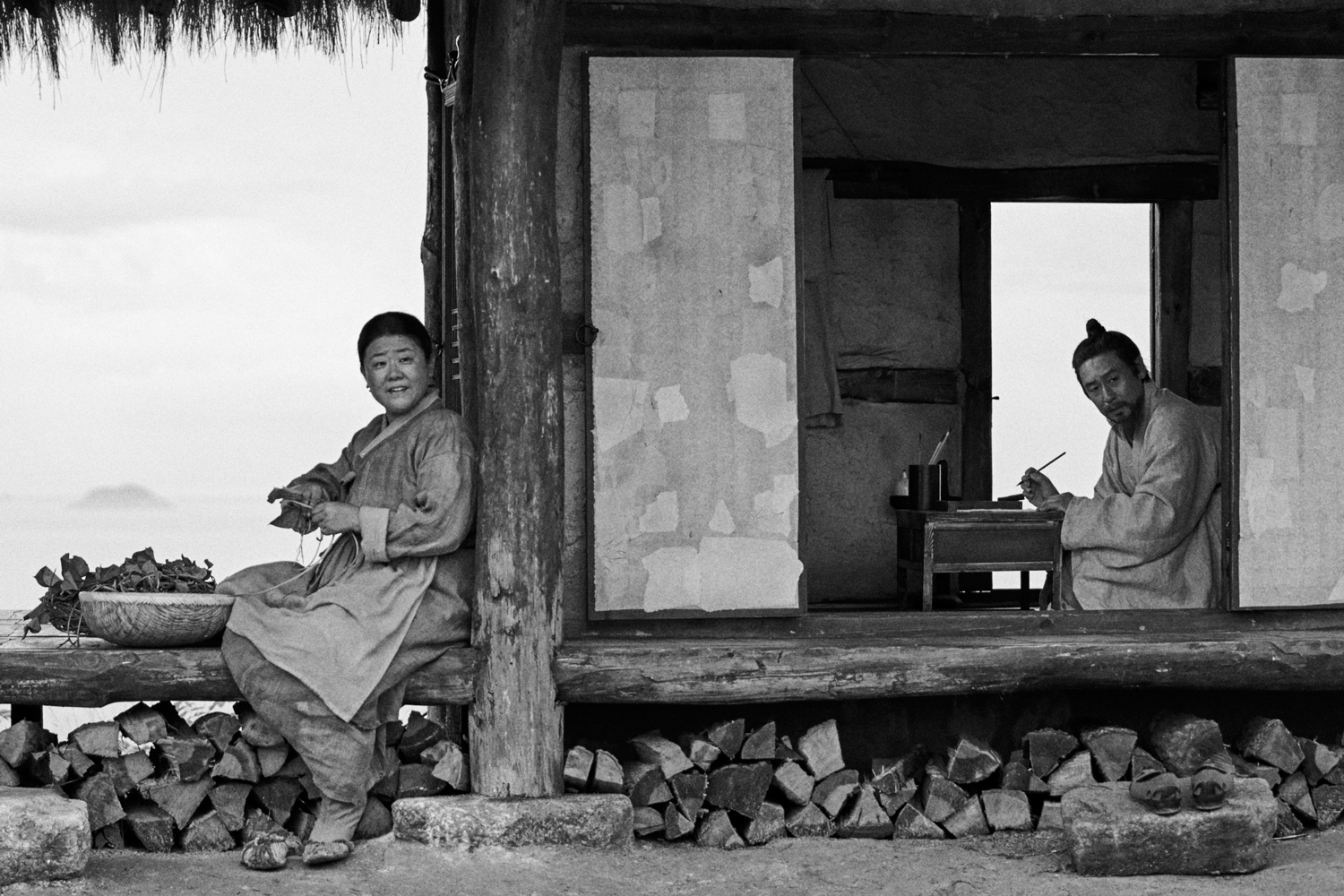
I didn't watch this movie for two months after I got the resources, because it's a black and white film, why would I choose to watch a black and white film in the 2020s. But the word of mouth is getting better and better, and the Douban score is as high as 8.7. How can I not watch such a movie, and after watching it, I found that the color issue that I originally cared about did not affect my viewing pleasure at all. The director used a simple, flawless and impeccable picture to slowly create a A long scroll of history like an ink painting.
Director Li Ruiyi's name may sound unfamiliar, but when it comes to his previous works "The King's Man", "Su Yuan" and "Si Mourning", everyone should be familiar with it. He sacrificed in terms of imaging effects, so he chose this special presentation method that best suited the theme of the story. He was undoubtedly successful, and he deserved the Best Photography Award.
There are two protagonists in the movie, one is called "two classes" and the other is "untouchables". At that time, the Korean society was divided into two classes. The princes were divided into good people and untouchables. The highest, similar to the scholar-officials in ancient my country. It is almost impossible for these two classes to have any daily intersection, and the story begins here.
It is actually very difficult to shoot a movie about a real historical figure. If one sidedly pursues the truth and restores history, it will be too dull. If you pursue dramatic effect, you are afraid that historians will jump out and accuse the director of disrespecting historical facts, so the director is very smart. The protagonist Ding Ruoquan has three brothers. , He is the eldest brother, but he is not the most famous. His younger brother Ding Ruoyong wrote hundreds of books during his exile, and the real works are equivalent, while the eldest brother himself only wrote two books, one of which is "Zishan Fish Spectrum". Choosing such a non-famous person as an entry point can maximize the dramatic conflict of the story without being disturbed by objective factors as much as possible. Someone who is known to others and who is great.
All three brothers Ding Ruoquan believed in Catholicism. It was North Korea in 1800. Jeongjo (the son of the prince who died of hunger and thirst in a rice box for eight days in "Si Mourning") died, and Queen Zhenchun lowered the curtain. In order to combat political enemies, he ordered the purge of Catholicism. The third of the three brothers, Ding Ruozhong, was executed, Ding Ruoquan and Ding Ruoyong were exiled, and the place where Ding Ruoquan was exiled was Heishan Island.
Against such a heavy story background, the director did not deliberately exaggerate the pain and amplify the tragic, but instead used an unusual restraint method to find the calmest, most relaxed and cheerful way of narration to tell, making this film both a kind of The tragic deep theme and the comedy-like beauty of the process, the narrative is smooth and coherent, so it is particularly beautiful.
The character Ding Ruoquan in this film is very interesting. He is not a god. After being arrested for the "Xinyou Religion Prison" incident, he immediately made a clear cut with the "cult", and his attitude was firm, thus saving the lives of his two brothers. Simple perfidy, but because his original philosophical concept is that "human" is the root of all things, whether it is God, Zhuzi, and even the king can't be above this.
The fisherman Changda gave Ding Ruoquan great help. They were both teachers and friends. He taught him Lao Zhuang Zhuzi, he taught him fish knowledge, and they both found their goals in life. The private school taught the fishermen's children how to read and write. This was also the most leisurely time in their teacher and apprentice life. The two also found their own life partners.
However, their goals in life are actually different. Writing "Zishan Fish Spectrum" is Ding Ruoquan's work after going through the vicissitudes of life and seeing through the darkness of officialdom. It is a kind of personal practice and spiritual comprehension; but for Changda, Studying hard for a hundred schools of thought is to get rid of the shackles of pariahs and take part in scientific examinations to become an official. The master and apprentice eventually parted ways. In fact, this is also the ultimate confusion for each of us. What is the purpose of reading poetry and books in the cold window for ten years? In order to fill your own life or to achieve the transformation of life to stand out? Perhaps the answer will only be found at the end of life.